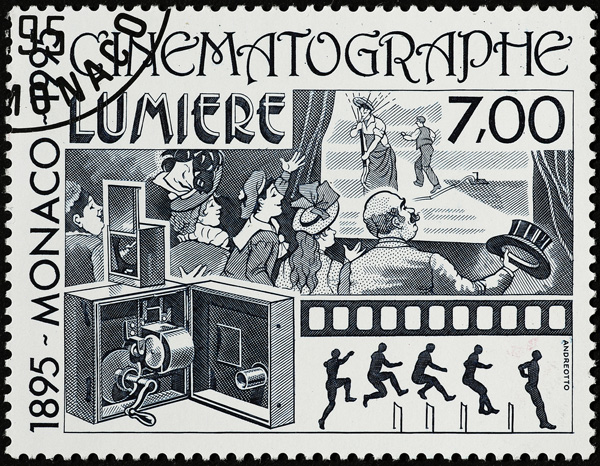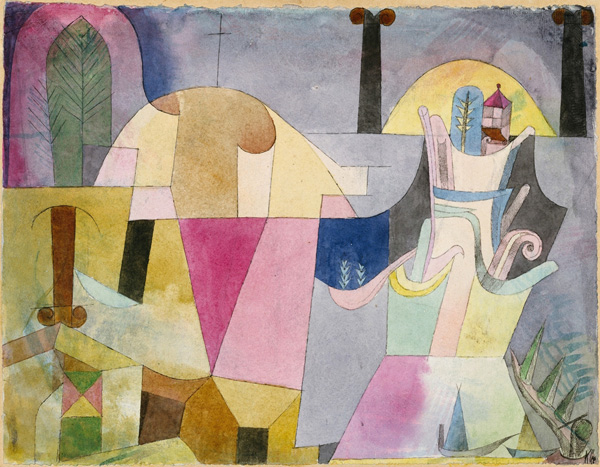
Welcome to the second piece in our new multi-part “Collective Wisdom” series of content marketing strategy articles, where you’ll learn proven methods taking you from the beginning of the content planning cycle to its final post-publication conclusion, and featuring insight from some of the world’s most respected and successful digital marketers.
Previously in “How to Boost Your Content Marketing Efforts By Planning Ahead,” we looked at implementing a smart and robust content planning strategy. Now it’s time to take a look at the intrinsically important content creation stage of any successful content marketing campaign.
Crafting Powerful Content
As we’ll explore, skillfully crafting content is one of the most important steps on a successful content marketing journey. After all, content is the centerpiece you present to the digital world — so let’s examine some of the strongest tactics to incorporate in your next campaign.
“Crafting content is a mélange in which you wear the varied hats of artist, air traffic controller, plumber, magician, statistician, salesman, marketer, and librarian.” — Lane R. Ellis @lanerellis Share on XTactic 1: Incorporate Appropriate, Effective, and Engaging Visuals

Should you use visual elements in your content? Here’s a hint: Yes!
Today’s marketing draws heavily on the use of interesting and compelling images and other visual content to both draw people in and clearly illustrate messages.
It’s no surprise that marketers use more visuals of all types — images, animated GIFs, videos, in-content playable games, and others — than ever before. Over time, a barrage of studies have shown their superior ability for us to remember them. Compared to plain text copy, which by some calculations has only about 10% recall after three days, some 65% of visual content stays in our memories after the same period of time, according to Dr. John Medina’s “Brain Rules” and other studies.
Furthermore, according to HubSpot research, visual content is over 40 times more likely to be shared on social platforms, and brands have become increasingly creative in using techniques including animated GIFs, such as the good examples shown in “10 brands using beautifully creative GIFs right now.”
Videos, graphic presentations, charts and other data visualizations, animated GIFs, stock photos, fine art photos, screenshots, scans, and experimental imagery should all be considered and used to fill your specific content needs. The trick is knowing what to use and where to incorporate it, and understanding your audience helps narrow down the most appropriate and effective visuals for any particular piece of content.
“You've got seconds to grab your audience's attention and only minutes to keep it.” — Dr. John Medina @BrainRulesBooks Share on XTopRank Marketing Senior Content Marketing Manager Joshua Nite has looked into the importance of choosing dynamic and compelling images to include in written content campaigns, as he deftly explains in “How to Choose Dynamic Images for Your Blog Posts.”
“The right visual does more than take up space. It captures attention, creates a little mystery, invites the reader to dig into your carefully-crafted text.” — Josh Nite @NiteWrites Share on XAside from its use in blog posts, great imagery’s power of engagement carries over into the realm of content promotion.

“Good visuals are doubly important for amplification, too: Your Twitter, Facebook, and LinkedIn shares will all include an image,” Josh noted.
Knowing your intended audience and where they’re most likely to encounter a link to the shiny new content on your website is an important factor in choosing which visual elements will have the greatest pull and engagement.
For example, if your audience is clicking on a link to your new blog post or other content primarily on Reddit, the imagery and overall experience those people expect and find engaging is usually quite different than what someone finding your content on LinkedIn in looking for.
Use authoritative research on user experience to guide the visual imagery you choose, including the latest statistics on these elements, such as those Jeff Bullas has compiled in his “15 Visual Content Marketing Statistics That’ll Blow Your Mind.”
“People will forget what you said, but they will never forget how you made them feel.” — Maya Angelou Share on XTactic 2: Make it Easy For Readers to Share Your Content in the Ways They Prefer

You can have plenty of winning content in place, but without intuitive and expected methods in place to share your carefully-crafted work, it will likely remain largely a content island unto itself — a phenomena Lee Odden calls Invisible Content Syndrome.
Every audience has their own preferred means of sharing the things they find and love online. So, part of your content creation process should be to see that these methods are fully implemented, whether its as simple as having easily-found social sharing buttons and functionality, offering click-to-tweet messaging, or as advanced as using automatic copying of shortened and trackable URLs.
Heidi Cohen, Chief Content Officer at Actionable Marketing Guide, has gathered together some of her favorite ways of giving readers a variety of ways to share content, in “7 Ways to Get Extra Mileage From Your Blog Posts.”
“It’s eye candy that attracts readers by making it easy for them to get the meaning of your post quickly.” — Heidi Cohen @heidicohen Share on X
More content than ever is including click-to-tweet functionality, as it provides a useful way for readers to quickly and easily share key takeaways or especially insightful quotes, however, it may not be right for your content if your audience is not generally using Twitter.
Tactic 3: Harness the Power of Gamification

Interactive content and entertaining game-based or game-like content, including elements such as quizzes, polls, and surveys, are a proven way to boost engagement and content stickiness, raising time-on-page rates as fast as racking up a high score.
According to data from DemandGen, 91% of B2B buyers prefer interactive and visual content, which should come as no great surprise considering that such content stands out and is often a sign of well-thought-out content strategy.

Live-streaming platform Twitch has grown to become the twelfth most-visited site in the U.S. according to Alexa data, and its 15-million-plus daily users have helped bring active audience participation into the mainstream, as our own content strategist Nick Nelson detailed recently in his fascinating “How Twitch is Breaking New Ground In Audience Engagement #CMWorld.”
Our own Caitlin Burgess recently examined the power of interactive content in “Interactive Content Marketing: Why B2B Marketers Should Take Their Content from Boring to Bold,” a helpful deep-dive into not only why this form of content creates such strong engagement, but how to best use it in your content marketing campaigns.
“The real opportunity with #interactivecontent doesn’t lay in the interactivity itself. The real value creation is in the excitement or connection that you can make with your audience.” — Caitlin Burgess @CaitlinMBurgess Share on XOr, as Liraz Rahmin Postan noted in her look at gamification for Outbrain: “As content marketers, it’s so important to keep your audience engaged and motivated to keep going. Fun, game-based and interactive content does this really well.”
Gamification can include video, as our team did ahead of this year’s Content Marketing World conference, with retro 8-bit videos featuring event speakers:
TopRank Marketing digital strategy director Ashley Zeckman shows the entire series of video in “Ready Player One: Top CMWorld Speakers Dish Go-To Classic Content Marketing Combos.”
Tactic 4: Run With Traditional On-Page SEO Tactics

Crafting content wouldn’t be complete without using longstanding, tried-and-true SEO tactics such as basic metadata, some of which are so fundamental that they should always be used. Some of the same metadata elements I first used in 1993 during the pre-Google days are still wise to incorporate, including the ubiquitous-but-important HTML title and description tags.
Eighty-two percent of marketing influencers say that the effectiveness of SEO is generally increasing, according to MarketingProfs and Octos statistics.
Our own CEO, Lee Odden, explores some of these fundamental SEO questions in his “Power Pages and Best Answer Content: Should You Go Long or Short Form?” In addition, SparkToro’s Rand Fishkin, co-founder of Moz, also takes a look at just what SEO means today in his helpful piece “What Does It Mean to “Write for SEO” in 2018?”
“There's no reason you have to use this old-school junk methodology that became like pseudoscience in the SEO world and had a recent revival. You should be using words & phrases that Google has related to a particular keyword.” — @randfish Share on X
SEO is so ingrained in the structure of the web that it’s been surprising to hear it being given the last rites by some in the industry.
However, from our perspective, SEO is not only still a viable tactic, but also necessary — you just need to put the time into thoughtfully analyzing the data so you can pull actionable insights.
“Every marketer has access to this data. It’s time to analyze it and use it to inform your content strategy to create customized, relevant, and insightful content that is more valuable to your target audience.” — @annieleuman Share on XTactic 5: Creativity Is Key For Making Best-Answer Content That Stands Out

No matter how many technical tricks or contraptions you use in a content marketing campaign, the road will be a long uphill one if you don’t present creative and useful information that fills a need for your audience.
Being the best answer is the key tenet of Lee’s “Be the Best Answer: 5 Steps to Grow Influence for Your Brand,” which shows how creating or co-creating relevant and credible content is a vitally important step in a successful digital marketing campaign.
“Influence plays an important role in a ‘Best Answer’ marketing strategy.” — Lee Odden @leeodden Share on XThe best content creation involves both art and creativity, as comic author Scott Adams once summed up by pointing out that, “Creativity is allowing yourself to make mistakes. Art is knowing which ones to keep,” or as artist Paul Klee said, “One eye sees, the other feels.”
The greater the creativity you and your team have, the more of an an edge you can have on the competition, and creative content draws audiences in, entertains, and when done well, enlightens. It’s one of the main ways to differentiate your content.
Tying It All Together — What Next?

By incorporating appropriate, effective, and engaging visuals, making sharing easy, harnessing the power of gamification, using fundamental SEO tactics, and offering best-answer content, your content marketing will include the elements that give your strategy a much better chance at success.
These aren’t the only elements you’ll want to include in your content crafting tool bag, however, and next up we’ll take a close look at another group of important content creation tactics as we continue our “Collective Wisdom” series.
In the meantime learn more by catching us at an upcoming conference or webinar, including these four:
- Pubcon Las Vegas 2018 on October 17 in Las Vegas — “5 Secrets to Growing Influence in Marketing”
- ITSMA Marketing Vision 2018 on November 7 in Cambridge, MA. — “Influence the Influencers – How B2B technology companies can build brand awareness with content and influence ”
- MarketingProfs 2018 Marketing B2B Forum on November 15 in San Francisco — “The Confluence Equation: How Content & Influencers Drive B2B Marketing Success”


